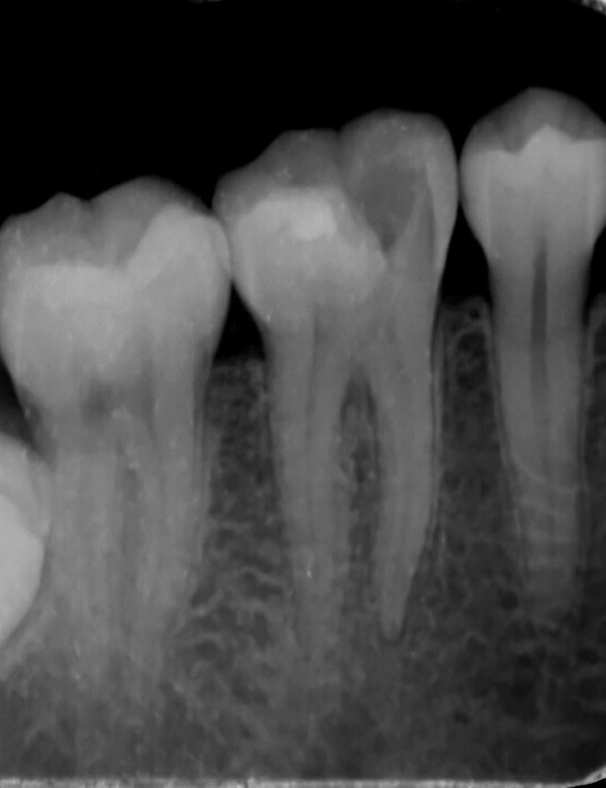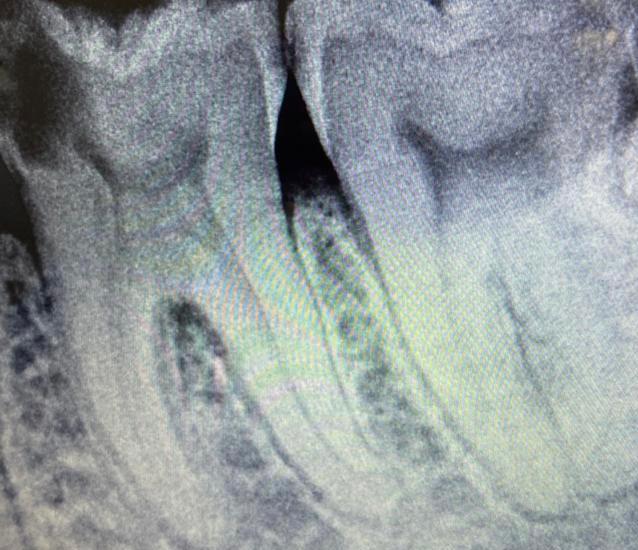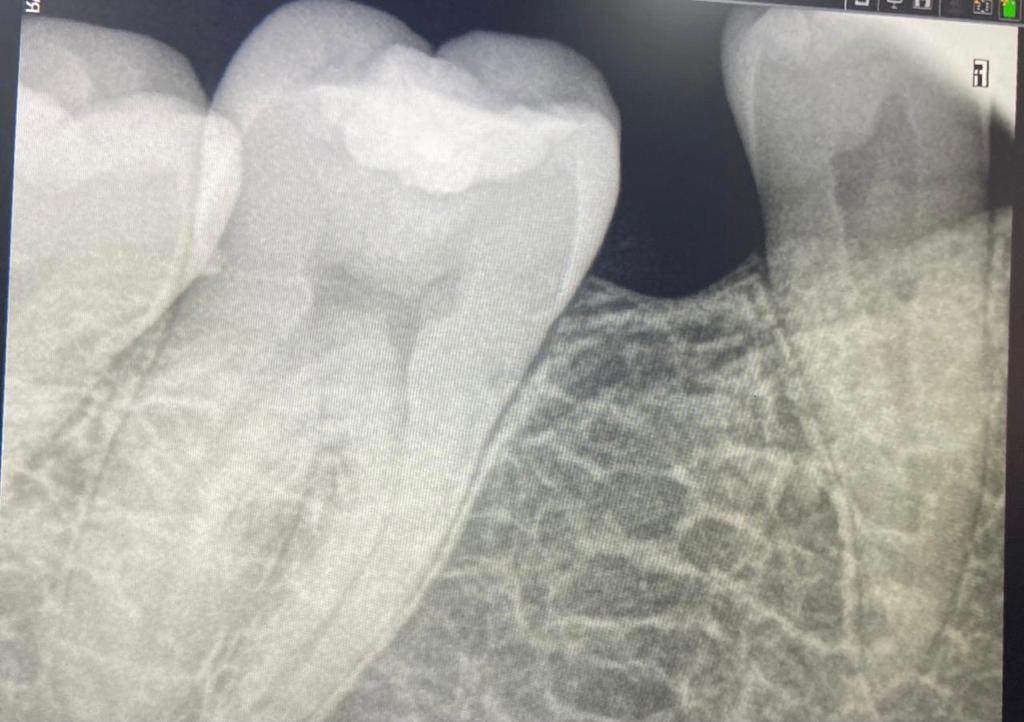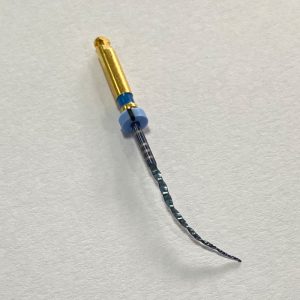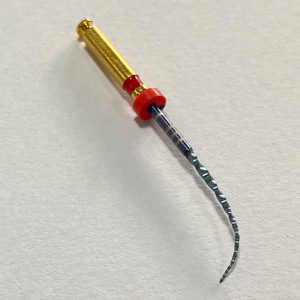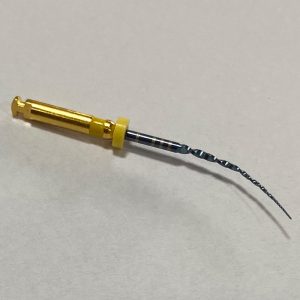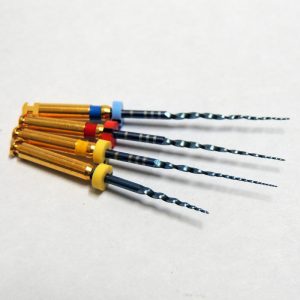

Pre Operative
Post Operative
PROFIT S3 ROTARY FILES
Nickel-titanium rotary files are patented files exclusively used for root canal preparation of permanent dentition. Profit S3 files have a variably variable (VV) taper design with a rectangular cross section. This cross section has a two point contact there by reducing apical extrusion of debris and reducing the tendency of the file to fracture. There by providing a smooth prepared canals which can receive the obturating material.
Guidelines For Using The Profit S3 Files

Access opening to be done to achieve a straight line access to the canals

Use #10 hand file to achieve initial patency of the canal to full working length

Use #15 and # 20 hand file to achieve initial enlargement before use of rotary files.

Use root canal lubricant during instrumentation followed by copious irrigation after each file is used

Clean the flutes of the file after every use and inspect for signs of distortion or unwinding.
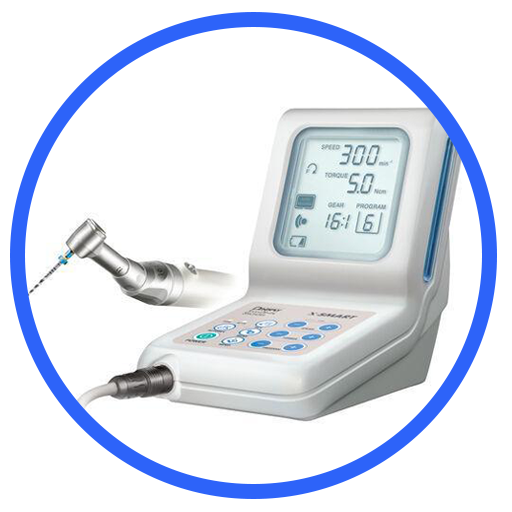
Use the instruments with the recommended motion , RPM and Torque.
Profit S3 Clinical Technique
Access opening to be done under rubber dam isolation.
The canals are negotiated with initial hand K-file no 10.
Determine the width of the canal(s) using Nos. 15 K files. If the Nos. 15 hand files have a snug fit, the canal is said to be narrower. If the No 15 hand files have a loose fit, the canal is said to be wider. Stainless steel Nos. 15 hand files are then used in reciprocating back and forth motion. Negotiate those instruments into the canal passively and progressively until they are loose in the canals. In case of wider canal use Nos.20 for initial enlargement.
P0 (Profit S3 rotary file is used as the initial rotary files). P0 is designed to cut dentin, mainly as an orifice opener, with its controlled taper avoiding excess root dentin removal. P0 files are used to enlarge the orifice to permit the usage of consecutive files. Irrigate the canal(s) to break up debris.
PF1 (yellow) rotary file is used in the narrower canal(s). PF1is designed to cut dentin, in a crown down manner, with its controlled taper avoiding excess root dentin removal. PF1 files are used with lubricant till the working length. Irrigate the canal(s) to break up debris.
PF2 (red) rotary file is used in the wider canal(s). PF2 is designed to cut dentin, in a crown down manner, with its controlled taper avoiding excess root dentin removal. PF1 files are used with lubricant till the working length. Irrigate the canal(s) to break up debris. For ease of preparation PF1 (yellow) rotary file can be used first followed by PF2 (red)rotary file.
PF3 (blue) rotary file is used in the anterior canal(s). PF3 is designed to cut dentin, in a crown down manner, with its controlled taper avoiding excess root dentin removal. PF1 files are used with lubricant till the working length. Irrigate the canal(s) to break up debris. For ease of preparation PF2 (red)rotary file can be used first followed by PF3 (blue) rotary file.
Clinical Tips For Profit S3 Rotary Files
- Use the files only in torque controlled endodontic motor with 300 RPM, 3 Ncm torque for P0 and 300 RPM, 2.5-3 Ncm for PF1, PF2 and PF3
- Always irrigate the canal before engaging a file and use the files ‘in and out’ action (not brushing).
- Withdraw the files once the working length is reached.
- Clean the files after each use and inspect for signs of distortion or unwinding
- Avoid forceful preparation during instrumentation by applying excess pressure on the files.


